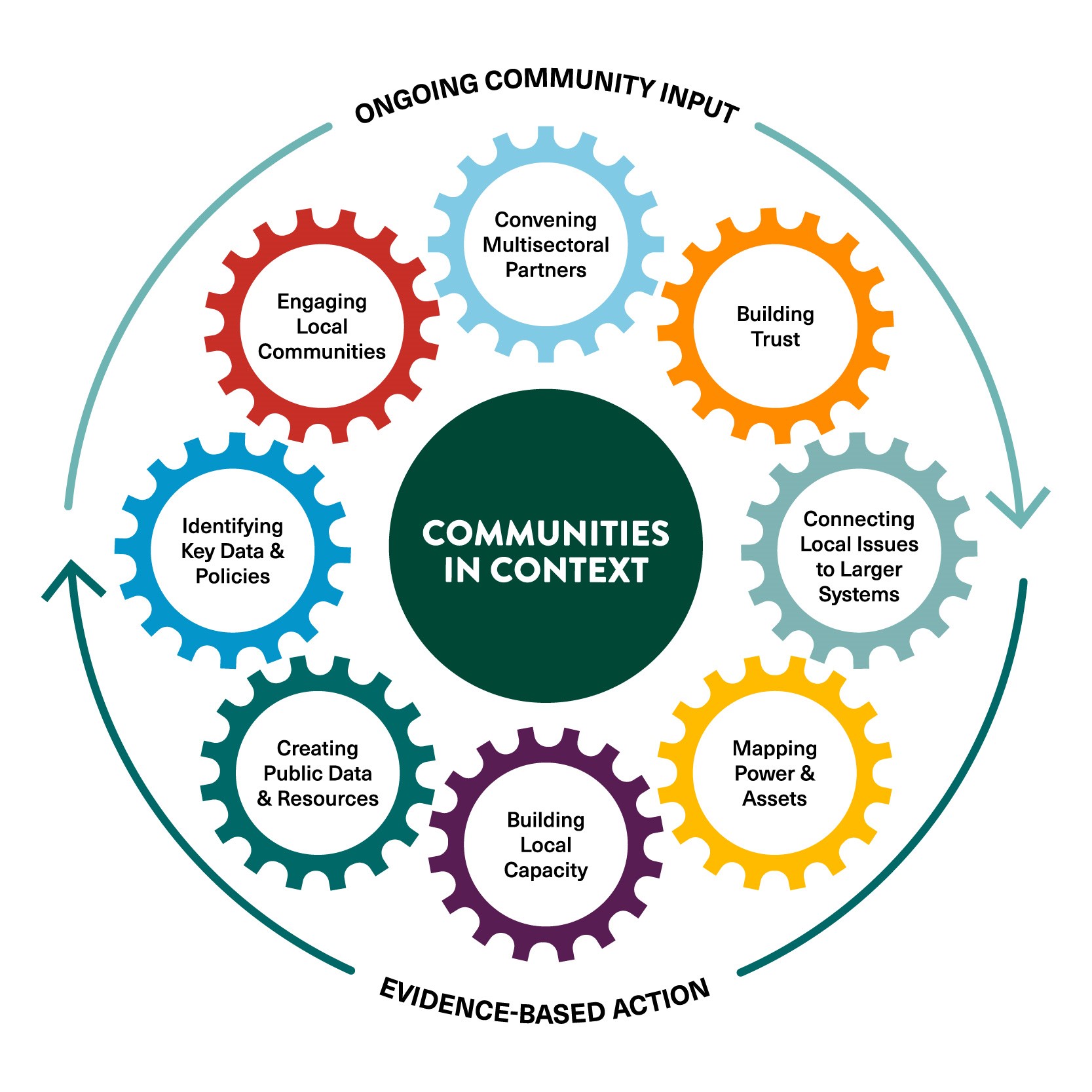Purpose
To collect and integrate various types of local data and create local resources to drive public health action with direct community guidance.

Description
Communities in Context (CiC) is an approach to collecting and compiling local-level public health data to inform public health action by effectively engaging and collaborating with local communities. CiC seeks to understand the non-medical factors that shape a community's health (or the social determinants of health), collect and integrate a variety of local-level data, and collaborate across community partners to identify priorities for community change and effectively address health inequities. This approach was piloted in the Greater Detroit, Michigan area, focusing on the topics of housing and mental health.
Partners in the CiC pilot in Detroit include CDC Foundation, Wayne State University’s Hub for Evaluation and Learning (HEAL), University of Michigan’s Housing Solutions for Health Equity, and the Institute for People, Place, and Possibility (IP3). Additionally, the community engagement work was led by a Community Steering Council comprised of five local community-serving organizations: the Arab Community Center for Economic and Social Services (ACCESS), Amity Foundation, Dearborn Public Health, MiSide, and Wayne Metro Community Action Agency.
The CiC approach (Figure 1) incorporates multiple unique activities to power local change including:
- Identifying, collecting, and integrating diverse types of local data in collaboration with the community;
- Engaging, and convening multi-sectoral community partners to interpret project findings; and
- Identifying opportunities for synergistic public health action and systems change to reduce health inequities.

Early Impact

The CiC pilot demonstrated the following early impacts in Detroit:
- Built local capacity by enhancing Detroit’s infrastructure to engage with communities around health inequities, collecting and integrating local level data, and better preparing the community to respond to the next public health crisis.
- Demonstrated CiC's model using housing and mental health to explore and address persistent health inequities more comprehensively.
- Increased community engagement and multi-sector collaboration through new and strengthened connections across academic institutions, community-serving organizations, health systems, and public health departments on housing and mental health.
- Built trust and cooperation between community members through collaborative interactions, such as through a community conversation held in February 2024 (Figure 2).
- Increased detection of local issues of concern through the incorporation of non-traditional data, including the collection of qualitative and mixed methods data. For example, CiC helped lead a power mapping activity that identified the key players and power dynamics in housing and mental health in Detroit – information not previously available and/or accessible that can be used to inform priorities for action.
- Created a unique and comprehensive website that pulls together qualitative data collected during the project and census tract data from a variety of national and state data systems. The website contains data dashboards and visualizations, reports, tools, and other resources with information to support local decision-making and accountable community public health action.
Stay tuned for more information from our community partners to learn about future activities following the CiC pilot!
